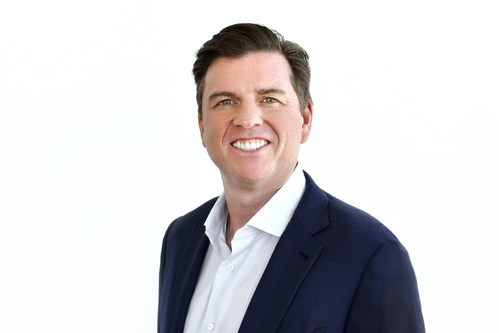Empathy, in a time of stress or decision-making, goes a long way in making someone feel cared for and understood. What if the businesses providing our services, flights, meals, etc, were already thinking about our wants and needs, and laying out options that apply to us. This kind of consumer-focused empathy, driven by user data, is the trait that Genesys’s, CEO Tony Bates, deemed so important that he made it a part of the corporate decision-making process. As Tony describes in this podcast, and in his book, “Empathy In Action,” times have changed in terms of what consumers want and expect from companies that provide services to them.
Main Takeaways
- Experience As a Service: If you think about the customer experience as one of the services that you provide, that creates room to allocate more resources to improving it. Bates found that priortizing and making space for experience as a service helped them strategize at Genesys about problem-solving in more individualized ways.
- Data Informs a More Empathetic Customer Experience: As Bates describes, every consumer has unique needs for customer service and interaction. Companies can streamline resources to be there for customers who want more personalized attention and also easily serve customers who are more suited for an automated process on an app or chat experience. Empathetic listening and analysis of data can paint a picture of what a customer wants to experience and how you can help them solve their problems.
- Empathy in the Decision Making Equation: A company framework for decision-making that is built on empathy ensures that empathy is actually implemented through the company. Bates is keen on the believe that quantifying the value of empathy with a number makes it easier to equate with traditional business values like efficiency.
For a more in-depth look at this episode, check out the article below.
Article
Empathy, in a time of stress or decision-making, goes a long way in making someone feel cared for and understood. What if the businesses providing our services, flights, meals, etc, were already thinking about our wants and needs, and laying out options that apply to us. This kind of consumer-focused empathy, driven by user data, is the trait that Genesys’s, CEO Tony Bates, deemed so important that he made it a part of the corporate decision-making process. As Tony describes in this podcast, and in his book, “Empathy In Action,” times have changed in terms of what consumers want and expect from companies that provide services to them.
“The first thing that really struck me is that the whole industry of customer experience basically was very much sort of business-centric metrics,” Bates said. So it was about efficiency and effectiveness. How do I get Albert in and out of a queue? I don’t even talk about Albert. I talk about the average handle to time and the wait time…Ultimately if Albert doesn’t feel like he has a better experience, he doesn’t really have a better experience. Just because my supervisor, as an agent said, gets a high score because I got you in and out of Q doesn’t necessarily mean that your customer satisfaction is high. So we started thinking about what’s the force multiplier.”
On a recent episode of IT Visionaries, Bates explained how he and Genysys discovered that the addition of empathy, alongside “efficiency and effectiveness,” led to better outcomes. He described how empathetic policies do more than bring a better customer experience; they also foster better culture throughout your business. Bates shared that adding empathy in interactions with colleagues and employees goes a long way in creating a great culture.
“Experience as a Service…I think the world is really moving to an experience economy and all of us have very high expectations as consumers,” Bates said “In fact, we’re very quick to switch. If we have a bad experience, there are lots of choices, but we used to sort of think about the end customer as a cohort or a certain type — there’d be a millennial or a digital native or a boomer. But it turns out, particularly because of the pandemic, that’s kind of gone away.”
Bates goes on to describe someone like his mother who is digitally savvy in some ways but requires more hand-holding online in other ways. Identifying the unique needs of each consumer is how the businesses of today are using Genesys to get ahead by staying connected.
“The philosophy that we’re really driving is we want to make sure every time you interact as a customer, you feel better about that interaction after you had it,” Bates said “When I joined Genesys, one of the things that was clear to me was that we, as an industry, we provided great technology, but we need to continue to improve that customer experience. So the way we think about it is we take all the signals, whether that’s coming through voice, social media, digital or through a bot, and we take those signals [and] try first to understand the fidelity of that signal — how good was that experience? Sometimes that’s measured in the survey. Sometimes that’s measured in real-time in AI. Then we try and predict how we can make that better. That’s the underpinning of the way we think about architecting the products at Genesys [and] is what we call experience orchestration.”
Fundamentally, Genesys is offering its customers malleable structures that help them up-level empathy for their own customers.
“We really drive [at] an architectural level this empathy-in-action framework,” Bates said “That is about listening, understanding, predicting, acting on that and then learning from that. Now, what that means is, we are providing those tools — we are making very flexible frameworks where [customers] can decide how they want to [use them] based on the test that they get for their customers. We are delivering the architecture.”
To hear more about the ways that Genesys and Bates are fostering empathy, listen to the full episode of IT Visionaries!
IT Visionaries is brought to you by the Salesforce Platform – the #1 cloud platform for digital transformation of every experience. Build connected experiences, empower every employee, and deliver continuous innovation – with the customer at the center of everything you do. Learn more at salesforce.com/platform




